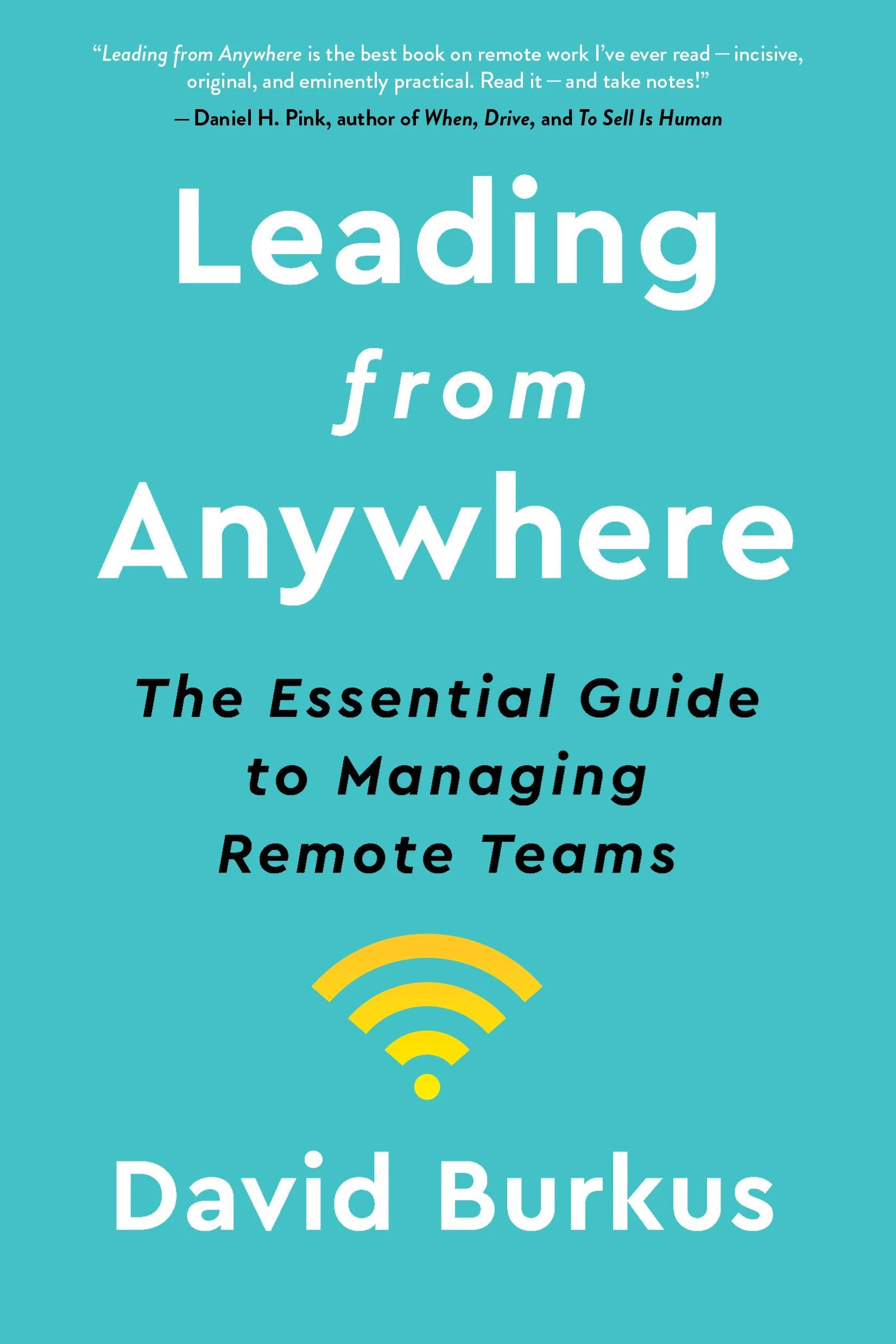Episode 94: David Burkus
You’re Probably Not Heading Back To The Office
As we head into year 2 of the COVID-19 pandemic, most knowledge workers are still working from home. You may be listening to this from your home office or kitchen table desk.
But before working from home became semi mandatory for health and safety reasons, many companies were very resistant to the idea of distributed and remote work.
David Burkus is an associate professor of leadership and innovation at Oral Roberts University and an author. His many books include Friend of a Friend: Understanding the Hidden Networks That Can Transform Your Life and Your Career, Pick A Fight: How Great Teams Find A Purpose Worth Rallying Around, and the very timely Leading From Anywhere: The Essential Guide to Managing Remote Teams.
In this opportune episode, Greg & David discuss how productivity changes while working from home, the science behind meetings, building boundaries in your new work schedule and creating a shared sense of purpose within teams, even when they are not in person.
Episode Quotes:
Measuring productivity in knowledge work:
“It is really hard to measure performance in knowledge work, especially day to day. It's really hard to know all of those people sitting at their desks, on the computer, are they being productive or not? And in the absence of that, a lot of managers, the lazier ones if we're being honest, will just flip and say, okay, well, when did they come in? When did they leave this? This person's gotta be productive because they're always staying late to get extra work done.”
On remote leadership:
“Hopefully now we've realized that presence doesn't equal productivity. There's better work to be done to measure and track that. But I really feel like there's a lot of people that even 14 months into this really just feel like it's still the truth and can't wait to get back. And I feel sorry for those people, because a lot of their most talented people do not agree with them.
The question I'm asked most often over the last year is when are we going back to the office? And the answer I give them is, we're not. At least not all of us and not all of the time. And so you better get ready to lead in that context.”
Creating a rule book for communication:
“Start with a working agreement, social contract. When I'm feeling particularly feisty, I sometimes refer to it as the declaration of interdependence for your team. We have to work together, so we're going to have to find a way to work together, right? And breaking down what is asynchronous versus synchronous communication is a part of that, but it's broader. It's all of those little unanswered questions. Where a lot of friction and where a lot of conflict on a team happens is when somebody assumes a norm that isn't actually what other people assume. It's when somebody sends an email and no one responds in the first 12 hours, and then they get angry when everybody else is going “well, I have a day. Like you sent me it via email, therefore I have 24 to 48 hours to respond”. Right? Those are things we actually need to flesh out. So what I encourage a lot of team leaders to do is make that list of questions about stuff we haven't resolved.”
Show Links:
Guest's Profile:
David Burkus on TEDXUniversityOfNeveda
His Work:
Leading From Anywhere: The Essential Guide to Managing Remote Teams
Pick a Fight: How Great Teams Find a Purpose Worth Rallying Around
Friend Of A Friend: Understanding the Hidden Networks That Can Transform Your Life and Your Career
Under New Management: How Leading Organizations Are Upending Business as Usual
The Myths of Creativity: The Truth About How Innovative Companies and People Generate Great Ideas









